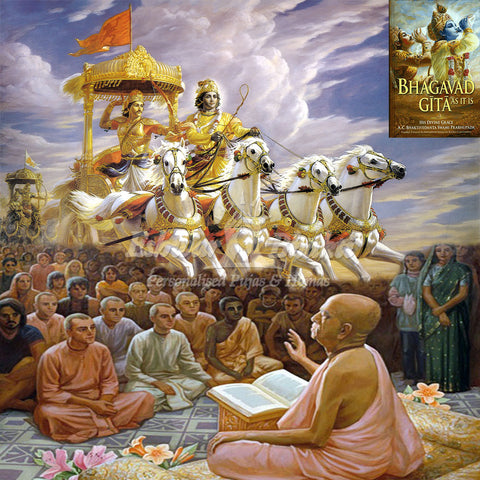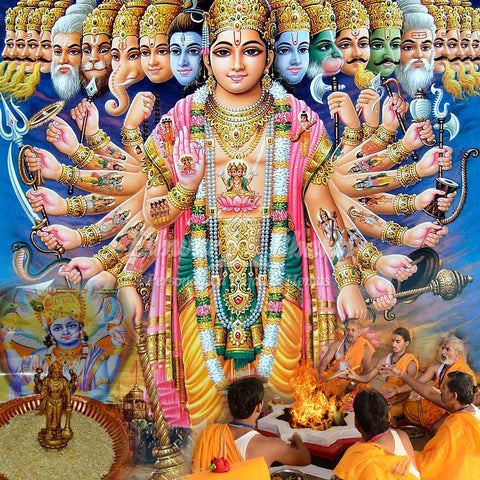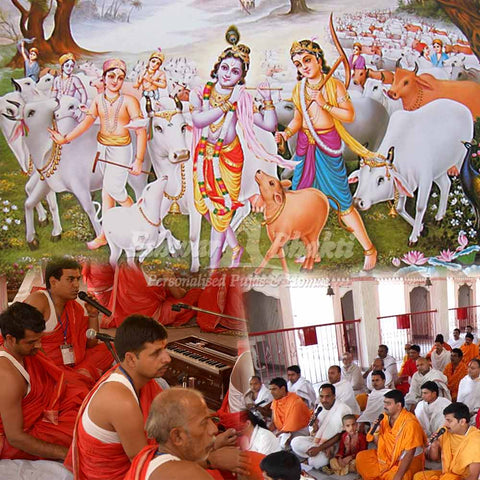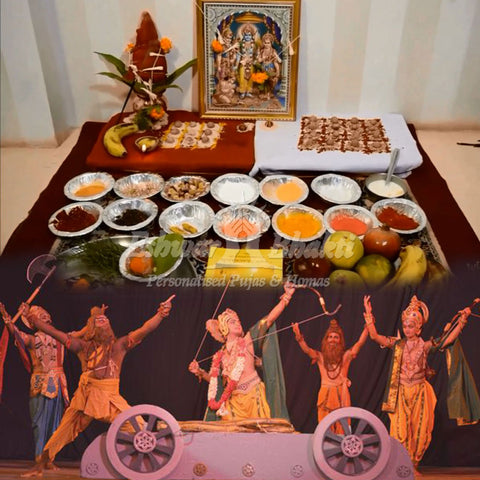Tulsi Vivaah
Tulsi is considered a sacred plant and carries a major religious significance within the cultures and beliefs of Hinduism. As per Vedic scriptures, the Tulsi plant is another incarnation of Goddess Laxmi, who is the consort of Lord Vishnu.
Tulsi or holy basil can be found in almost every Hindu house as it symbolizes purity and is famous for its medicinal qualities. "Tulsi Vivaah" is an auspicious traditional wedding (Vivaah) ceremony of the Tulsi plant to Lord Vishnu. Hindu sacred books describe Tulsi as “Vishnu Priya” literally meaning “the beloved of Lord Vishnu”. Most Hindus celebrate this festival on the day of "Dev Uthani Ekadashi, also known as Prabodhini Ekadashi" which falls during the lunar month Kartik.

How to celebrate Tulsi Vivaah?: Hindus perform this auspicious wedding ceremony either at home or by visiting a temple. Most of the devotees observe fast on this day till the completion of the divine ritual.
• Wake up before sunrise and complete your morning activities.
• To begin the puja, fold your hands respectfully in front of the Tulsi plant then bathe it with Ganga Jal (water) and clean the statue of Lord Vishnu.
• Place both of them in a clean place and offer sindoor (Vermilion), Haldi (Turmeric), flowers, garlands, incense sticks, and Diya with clarified butter.
• You can wrap a red cloth around and prepare the Tulsi plant in the form of a bride.
• Offer prasad along with fruits and sweets.
• Tie a holy thread or a garland of flowers between Tulsi and the statue of Lord Vishnu.
• Remember Goddess Laxmi, chant mantras, and sing the Tulsi aarti.
• In the end offer aarti and bow down with hope for prosperity and peace in life.
• Distribute the Prasad among your family members and dear ones.
Mantra to chant during the Puja: According to the teachings of Hindu mythology, chanting of Tulsi mantras is the most powerful way to please God Vishnu and Goddess Tulsi.
Tulsi Gayatri Mantra:
Om Tripuray Vidmahe, Tulsi Patrya Dhimahi, Tanno Tulsi Prachodayat.
Tulsi Pujan Mantra:
Tulasi Srirmahalakṣmirvidyavidya Yasasvini, Dharmya Dharmanana Devi Devidevamana Priya
Labhate Sutaraṃ Bhaktimante Viṣṇupadaṃ Labhet, Tulasi Bhurmahalakṣmi Padmini Srirharapriya.
Significance of Tulsi Vivaah:
• Tulsi is not a common herb. It is an incarnation of Goddess Lakshmi and blessed by Lord Vishnu.
• The Tulsi Vivaah signifies the beginning of the Hindu wedding season and the end of the four-month sacred period known as “chaturmasa”.
• Tulsi holds great importance in the lives of Hindus. The marriage (Vivaah) of Tulsi with Lord Vishnu means that God likes purity and His love and blessings are same for a human or a plant.
• Tulsi and astrology goes hand in hand, if a newly married couple celebrates Tulsi Vivaah then within no time the relationship grows stronger.
• As per the Padma Purana, Vindra, a blissful devotee of Lord Vishnu took birth as a Tulsi plant. Thus, conducting a marriage along with Kanyadaan (giving away the bride) on this day is believed to be most auspicious. Sometimes, a daughterless couple pays for the arrangements of this ritual so that they may get the Punya (merits) of Kanyadaan.
Tulsi Vivah – A Divine Story: The story of “Tulsi Vivaah” is found in the Padma Purana. There was a very pious woman, a great devotee of Lord Vishnu named Vrinda. She was the daughter of Daityaraj Kalnemi, the King of Mathura, and wife of the demon king Jalandhar.
A short detail about Jalandhar: Once Lord Shiva got annoyed with the King of Gods, Indra, and opened His third eye. But, upon the request of Dev Guru Brihaspati, Lord Shiva forgave Indra and directed the fire from His third eye towards an ocean. A boy was born out of it and become the mighty asura (demon) king Jalandhar. Being a son of Lord Shiva, Jalandhar had great powers. Because of his demonic nature, he headed towards conquering all God. There was no way to kill Jalandhar as long as his wife Brinda the pious woman stayed loyal (Pativrata) towards him.
As per the request of all other demigods, Lord Vishnu decided to take the form of Jalandhara and meet Brinda at her palace. Brinda was not able to recognize that the disguised husband was Lord Vishnu, and spent that night with Him. The devotion and the chastity (Pativrata dharma) of Brinda was thus destroyed, due to this ugly act of Lord Vishnu. Ultimately, demon Jalandhar was defeated and killed by Lord Shiva due to Vrinda’s inability to guard him anymore. As a result, Brinda got extremely upset with Lord Vishnu’s deeds and cursed Him to turn into a stone, suited to the way He behaved, since stones are heartless. Lord Vishnu becomes a stone- Shaligram and the whole creation becomes unbalanced. Looking at this unexpected situation, Goddess Lakshmi and other demigods prayed to Vrinda to take back her cruse. As a devotee of Lord Vishnu, she took it back without any protest.
After that incident, Vrindra immolated herself in the fire with her husband. And a plant was sprung from her ashes and Lord Vishnu named that plant “Tulsi”. The Supreme Lord transmuted Vrinda’s soul into the Holy Basil plant. The merciful God Vishnu declared that one of His forms will be called Shaligram and His devotees will worship it along with Tulsi. Thus, started, the tradition of honoring Tulsi by performing “Tulsi Vivaah” in the month of Kartik.
Summary: Many plants and trees are given a sacred place and worshiped like Gods and Goddesses in Hinduism. Tulsi is one of them which is often referred to as “Vishnu Priya” (Loveable to Lord Vishnu). Hindu devotees celebrate Tulsi Vivaah on the day of "Dev Uthani Ekadashi, also known as Prabodhini Ekadashi" of Hindu month Kartik. In India, Tulsi Vivaah is also famous because it's time to bid farewell to the monsoon season and welcome the Hindu marriage season.
On this holy day, devotees of Lord Vishnu decorate a mandap (place for marriage) with flowers, lights, sugarcane tree, etc. Two different families make the necessary arrangements for this marriage ceremony as if they are the families of the bride and the groom. They perform the ceremony and distribute the prasad among all devotees after the ritual.








